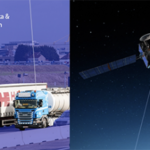With the launch of Galileo Initial Services and the availability of numerous Galileo-enabled chipsets and receivers, users are benefiting from the stronger GNSS performance that a multi-constellation environment provides.
As the GSA’s GNSS Market Report shows, the global GNSS market remains dynamic. GNSS is used around the globe, with 3.6 billion GNSS devices in use in 2014. By 2019, this is forecasted to increase to over 7 billion – an average of one device per person on the planet. Smartphones continue to dominate, being the most popular platform to access location-based services, followed by devices used for road applications. Other devices may be less numerous, but billions of passengers, professionals, consumers and citizens worldwide benefit from their application in efficient and safe transport networks, in productive and sustainable agriculture, and in surveying and critical infrastructures. Read more…




